- News
- Reviews
- Bikes
- Accessories
- Accessories - misc
- Computer mounts
- Bags
- Bar ends
- Bike bags & cases
- Bottle cages
- Bottles
- Cameras
- Car racks
- Child seats
- Computers
- Glasses
- GPS units
- Helmets
- Lights - front
- Lights - rear
- Lights - sets
- Locks
- Mirrors
- Mudguards
- Racks
- Pumps & CO2 inflators
- Puncture kits
- Reflectives
- Smart watches
- Stands and racks
- Trailers
- Clothing
- Components
- Bar tape & grips
- Bottom brackets
- Brake & gear cables
- Brake & STI levers
- Brake pads & spares
- Brakes
- Cassettes & freewheels
- Chains
- Chainsets & chainrings
- Derailleurs - front
- Derailleurs - rear
- Forks
- Gear levers & shifters
- Groupsets
- Handlebars & extensions
- Headsets
- Hubs
- Inner tubes
- Pedals
- Quick releases & skewers
- Saddles
- Seatposts
- Stems
- Wheels
- Tyres
- Health, fitness and nutrition
- Tools and workshop
- Miscellaneous
- Tubeless valves
- Buyers Guides
- Features
- Forum
- Recommends
- Podcast
feature
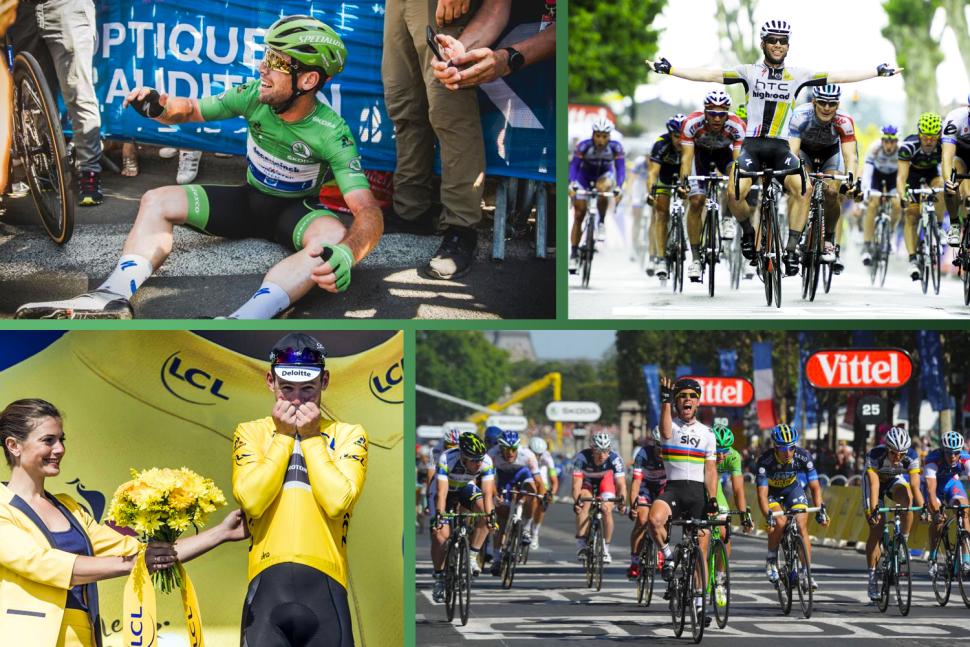 Mark Cavendish's top 10 Tour de France wins
Mark Cavendish's top 10 Tour de France wins“The Tour de France is bigger than cycling. And we’ve done it”: Record-breaker Mark Cavendish’s greatest ever Tour de France stage wins
On a gentle right-hand bend in the small commune of Saint-Vulbas, nestled peacefully on the banks of the Rhône, it happened.
After three years of frustration, anger, and heart-wrenching near misses, and a handful of kilometres of constant jostling, jumping, and fighting for position amid the chaos of a typically frenetic Tour de France sprint finish, Mark Cavendish finally found a gap and went for it.
That initial acceleration, a burst of speed so severe that its hunched-over fury is embedded in the memory of André Greipel, Marcel Kittel, and all those who tried and failed to match it over the past 17 years, had returned.
Its timing was impeccable.
(Zac Williams/SWpix.com)
On stage five of the 2024 Tour de France, Cavendish – who later this year will kneel before King Charles to receive his knighthood – saw off the young pretender Jasper Philipsen and cemented his position high within cycling’s own royalty, and within the history books of the race that has defined him.
The Manx sprinter’s long-awaited 35th Tour stage win in Saint-Vulbas, where rural tradition butts up against the surrounding clang of industrialised modernity, represented cycling’s own encounter between its past and present, and saw Cavendish triumphantly move clear of Eddy Merckx as the outright holder of the record for the most stage wins achieved at the sport’s biggest race.
After dominating the narrative around arguably Britain’s finest ever cyclist since no. 34 was secured three long years ago, Project 35 was finally, brilliantly, magically complete.
> Mark Cavendish makes history with record-breaking 35th Tour de France stage win
(Zac Williams/SWpix.com)
However, at one point last year, it’s worth remembering, the whole record-chasing endeavour seemed like a forlorn hope.
In Bordeaux, on stage seven of last year’s Tour – a grand tour he claimed at the time would be his last – a mechanical mishap in sight of the line robbed Cavendish, winning speed clearly intact, of his historic triumph.
A day later, in a cruel twist of fate, the Manxman sat unmoving and disconsolate in the back of the race’s medical van, nursing a broken collarbone, his Tour career and record-breaking dream seemingly in tatters.
However, in October a change of heart, a social media post – “It’s not over yet” – and Project 35, which had lain dormant for three months, was back on, as Cavendish postponed his retirement plans for one more crack at immortality.
In the meantime, his Astana Qazaqstan team, who rescued him from the contract wilderness in late 2022 and eager to dispel several years of mediocrity with the greatest publicity coup of all time, were busy putting all of their eggs in the Cav record basket.
Former Quick-Step lead-out train members Michael Mørkøv and Davide Ballerini, who helped guide him to those four redemptive wins in 2021, were recruited, as was Cavendish’s most famous sprint pilot, Mark Renshaw, now called the shots from the team car.
(Zac Williams/SWpix.com)
Doubts over whether Cavendish, 39-years-old and 18 years into his pro career, possessed the form and speed to win at cycling’s biggest race remained stubbornly persistent throughout 2024, however.
Two wins, at the Tour Colombia and Tour de Hongrie, fell either side of stretches of sprinting anonymity, while Cavendish’s pre-Tour preparation featured forays into local amateur racing on the Isle of Man and a Tour de Suisse focused more on building his ability to handle the big climbs than honing his finishing kick.
His start to the Tour was even less promising – a grim slog through the Apennines on a scorchingly hot opening stage saw Cavendish briefly appear in danger of missing the time cut, as he dropped out of the peloton on the day’s first climb, his face and body a picture of suffering.
On the first real sprint day into Turin, a late crash stalled his progress and ruled him out of contention.
But then again, this is Sir Mark Cavendish we’re talking about, and as he exploded off the wheel of Pascal Ackermann on that gentle right-hand bend in Saint-Vulbas, three years of hurt, and 16 years of history, came together with one ferocious, perfectly timed sprint.
(Zac Williams/SWpix.com)
That 35th stage win provides a fairytale ending to one of cycling’s greatest careers, and etches the British star’s name deeper into the history of a race with which he has become synonymous since taking four stage wins as a precocious 23-year-old back in 2008.
Since that breakthrough triumph on stage five in Châteauroux, when he clasped his hands to his head in disbelief as he crossed the line (the same disbelief that engulfed the Manx rider in Saint-Vulbas on another fifth stage, 16 years on), Cavendish’s 35 wins at cycling’s biggest race have come amidst spells of unprecedented dominance, spells of doubt, spells in the wilderness, and spells of Lazarus-like resurgence.
They’ve spanned the eras of Armstrong, Froome, and Pogačar, as well as changes in his own approach to life and to his sport.
The former world champion has always said that one stage win at the Tour de France would be enough. 35 has proven, definitively, that he’s the greatest sprinter cycling has ever seen.
To celebrate the Manx Missile’s record-breaking triumph, we decided to pick out our favourite of those 35 Tour stage wins from one of cycling’s most charismatic, iconic, and enduring characters. There were 10 originally chosen, but we ended up with 11, just because…
The First One
2008, Stage 5: Cholet to Châteauroux
After a difficult introduction to the Tour in 2007, a baby-faced Cavendish catapulted himself into the top tier of sprinters with two wins at the Giro d’Italia in May 2008. But it was stage five of that summer’s Tour, when he held off veterans Óscar Freire and Erik Zabel for the win in Châteauroux, that firmly cemented his status as the fastest kid on the block.
That win would be the catalyst for three further stage wins later in the race (he would have certainly won more if not for a pre-planned Olympics-related abandon before stage 15) and would also start an enduring love affair with Châteauroux, where he would win two more stages in 2011 and 2021.
The Team One
2009, Stage 3: Marseille to La Grande-Motte
Most fans remember this stage as the day when Lance Armstrong – aided by his old buddy, and Cavendish’s Columbia-HTC teammate Big George Hincapie – tried to stab his Astana ‘leader’ Alberto Contador in the back in the crosswinds blowing across France’s south coast. But at the end in La Grande-Motte, a rampant Cav also displayed his growing tactical nous, and the strength of his team, to bag the second of what would end up being a crushingly dominant six stage haul.
The Toughest One
2009, Stage 19: Bourgoin-Jallieu to Aubenas
At the 2009 Tour de France, Cavendish was simply unbeatable. He was the fastest man around by far, and the ruthless Columbia-HTC train was in full swing. But stage 19 to Aubenas was something else – the Manx sprinter somehow dragged himself over the 20km-long, second cat Col de l'Escrinet, which topped out with 17km to go, before beating Thor Hushovd to prove he was far from a flat track bully.
The Dominant One
2009, Stage 21: Montereau-Fault-Yonne to Paris (Champs-Élysées)
First ever win on the Champs-Élysées, a sixth stage victory of the race, your lead-out supremo Mark Renshaw finishes second, and nobody else is even remotely in the picture. Absolute perfection.
The Emotional One
2010, Stage 5: Épernay to Montargis
The beginning of the 2010 season was arguably the toughest of Cavendish’s five-year spell as the undisputed fastest sprinter on the planet. A much-publicised dental issue, personal troubles, and question marks over his form and sprinting style meant that the pressure was mounting on Cavendish come July, and only continued to rise when he fell short on the Tour’s opening two sprint stages. But when the win finally arrived, on stage five to Montargis, the tears flowed for the extremely relieved Manxman. And so too did the wins – by the end of the Tour he had five, and the critics were definitively silenced.
The One with the Green Jersey
2011, Stage 21: Créteil to Paris (Champs-Élysées)
After a few years of near misses, ASO’s decision in 2011 to tweak the points competition – some would say to ensure that the sport’s dominant sprinter could finally nab a jersey seemingly designed to reward sprinting dominance – resulted in the image we’d all been waiting for since 2008: Cavendish in green winning on the Champs-Élysées. He’d follow up his first green jersey (and his only Tour points triumph until repeating the feat exactly a decade later) by adding a rainbow one to his collection later that year. Not bad.
The Iconic One
2012, Stage 21: Stage 20: Rambouillet to Paris (Champs-Élysées)
The yellow jersey leading out the world champion to victory on the Champs-Élysées. Enough said. Well, actually, probably a whole doctoral thesis’ worth could be said about a Sky team that managed to win the Tour de France while managing – just about – the egos and expectations of two potential race winners, as well as the fastest sprinter in the world.
In fact, Cavendish’s win on stage 18 – by then, only his second of what had been a frustrating race – when he was forced to surf the wheels on his way to victory in Brive-la-Gaillarde, perhaps says more about his square peg in a round hole experience at Sky, along with his unflinching ability to win regardless of the circumstances. But for many, when they think about 2012, it all boils down to one iconic image in Paris, an image that encapsulated Britain’s position at the top of the cycling world.
The Windy One
2013, Stage 13: Tours to Saint-Amand-Montrond
By 2013, after a frustrating but ultimately successful year at Sky, the sprinting winds were a-changing. Marcel Kittel had arrived, the first rider in five years to realistically challenge Cavendish’s position as the fastest man on two wheels. So, like he would continue to do over the next ten years, Cavendish adapted.
His second, and final, stage win of the 2013 Tour was an exercise in tactical ingenuity and one which proved that if you can’t beat the big powerful German sprinter, you make sure he doesn’t contest the finish. The British rider’s new Omega Pharma-Quick Step team blew the race apart in an exposed section with 30km to go and stormed to the finish. Chris Froome floundered in the wind, and Cavendish easily dispatched the small group sprint, including Peter Sagan, chalking up his quarter of a century at the Tour in the process.
The One with the Yellow Jersey
2016, Stage 1: Mont Saint-Michel to Utah Beach
It’s hard to believe now, but in many respects, stage one of the 2016 Tour to Utah Beach marked the first edition of the Mark Cavendish Comeback story. Between that iconic win on the Champs in 2012 and the start of the 2016 race, he’d only won three stages at the Tour – by contrast, he’d taken 16 between 2009 and 2011 – and his days as the undisputed best sprinter in the world appeared to be numbered.
But in 2016, Cavendish came within a whisker of his greatest season ever: after the Tour he took silver in the omnium at the Olympic Games and was just pipped at the world road race championships by Peter Sagan. But it was at the Tour where he proved he was back to his brilliant best, winning the first stage in Normandy – beating pretenders Kittel, Sagan, and Greipel in the process – to take the first yellow jersey of his career. Three more wins would follow before dropping out, like in 2008, to prepare for the Olympics. He was back.
The Redemptive One
2021, Stage 4: Redon to Fougères
At the end of 2020, after years in the wilderness, a disconsolate, dejected, defeated Mark Cavendish appeared on the verge of retirement. But then an opportunity at Deceuninck-Quick Step popped up, giving him one more season at the top. Then Quick Step’s big-name sprinter, and the previous year’s green jersey, Sam Bennett pulled out of the Tour with a last-minute injury.
Those simple twists of fate opened the door for one of cycling’s great comeback stories. The 2021 Tour resembled a two-wheeled fairy tale for Cavendish. Wins at Fougères – an emotional first Tour stage for five years – and Châteauroux, scenes of his past glories, were followed by further victories at Valence and Carcassonne, where that record, the one that followed him around like a ghost for most of the past decade, was finally equalled. Redemption, at last.
The Record-Breaking One
2024, Stage 5: Saint-Jean-De-Maurienne to Saint-Vulbas
(Zac Williams/SWpix.com)
Five days into a Tour plagued by doubts over his form, fitness, and age, nobody expected Mark Cavendish to deliver the seismic shock that occurred with 200m to go in Saint-Vulbas. Except for Mark Cavendish, of course.
In a chaotic final kilometre, Astana’s lead-out train, whose presence at the front of the pack had placed Cavendish firmly in the mix, faltered, leaving the Manx Missile to surf the wheels, his jittery, dynamic style still intact. First, he found pre-stage favourite Philipsen’s wheel. Then at just the right moment, like a lethal striker bearing down on a goalkeeper, he possessed the coolness of mind to flick across to Pascal Ackermann. The road curved, then opened up.
HE'S DONE IT!!!!
MARK CAVENDISH TAKES A RECORD BREAKING 35TH TOUR DE FRANCE STAGE VICTORY 🇮🇲🚀#TDF2024 pic.twitter.com/ZWqfbnS7eN
— ITV Cycling (@itvcycling) July 3, 2024
Boom. In ten seconds that transported cycling fans back to Châteauroux, La Grande-Motte, and the Champs-Élysées, back to 2009, 2011, and 2016, Cavendish ignited. The chain that bounced as he lost out to Philipsen in Bordeaux last year now dangled freely as the former world champion crossed the line a bike length ahead of the Belgian, a striking physical assertion that maybe, sometimes, things are just meant to be.
(Zac Williams/SWpix.com)
After three years of doubts and frustration, the record was his. The greatest sprinter of all time, arguably one of Britain’s finest ever sportsmen, had made history.
Now for Project 36…
After obtaining a PhD, lecturing, and hosting a history podcast at Queen’s University Belfast, Ryan joined road.cc in December 2021 and since then has kept the site’s readers and listeners informed and enthralled (well at least occasionally) on news, the live blog, and the road.cc Podcast. After boarding a wrong bus at the world championships and ruining a good pair of jeans at the cyclocross, he now serves as road.cc’s senior news writer. Before his foray into cycling journalism, he wallowed in the equally pitiless world of academia, where he wrote a book about Victorian politics and droned on about cycling and bikes to classes of bored students (while taking every chance he could get to talk about cycling in print or on the radio). He can be found riding his bike very slowly around the narrow, scenic country lanes of Co. Down.
Latest Comments
- brooksby 1 sec ago
The rhino in the room is that the bus/coach/large-passenger-transporter driver is also supposed to be ready to stop/give way to people crossing the...
- mark1a 2 min 38 sec ago
According of ofcom, all four networks (and their dependent mvno services) will have switched off 3G by 2025. Currently, EE, Vodafone and Three are...
- Benthic 6 min 13 sec ago
There's no need for foul language.
- hawkinspeter 18 min 57 sec ago
Her explanation sounds a bit weaselly to me and I have trouble believing that someone can report a mobile phone being stolen by a mugger when it...
- AidanR 19 min 6 sec ago
It is astonishing how cheap you can get bikes for on eBay if you're happy with rim brakes!
- thax1 29 min 50 sec ago
Favero Assioma power pedals £249 single/ £369 dual on their website.
- eburtthebike 56 min 17 sec ago
Either due to normal fluctuation or reduced levels of cycling i.e. not a real reduction.
- jamesha100 10 hours 50 min ago
I have been in Belfast for work this week and have been shocked by the congestion around the city centre. There are lots of frustrated drivers...
- David9694 11 hours 12 min ago
Cyclists should be made to have insurance etc https://www.thetelegraphandargus.co.uk/news/24757516.four-vehicles-seize...
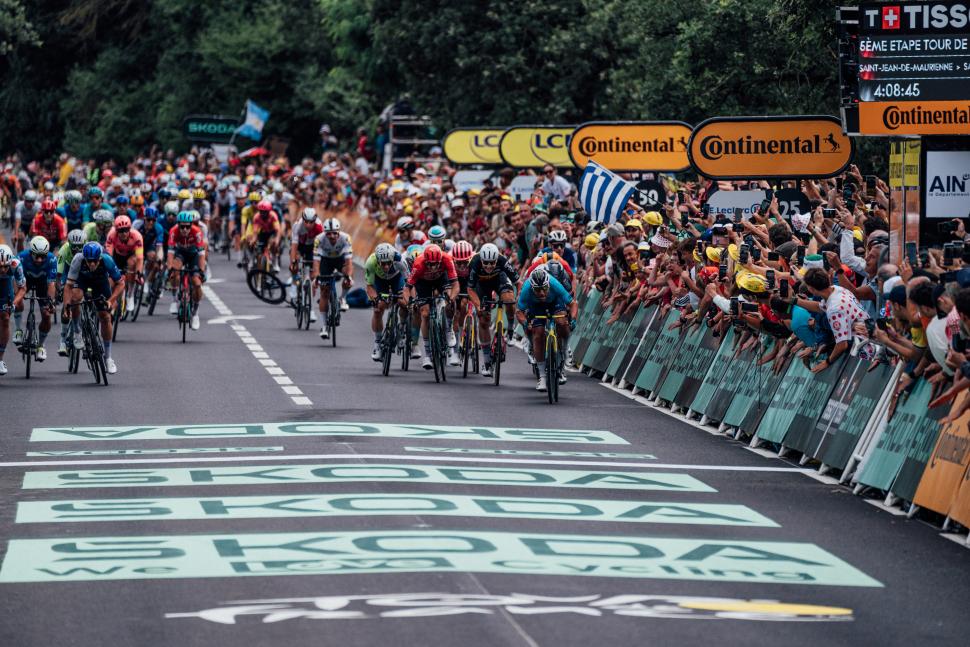
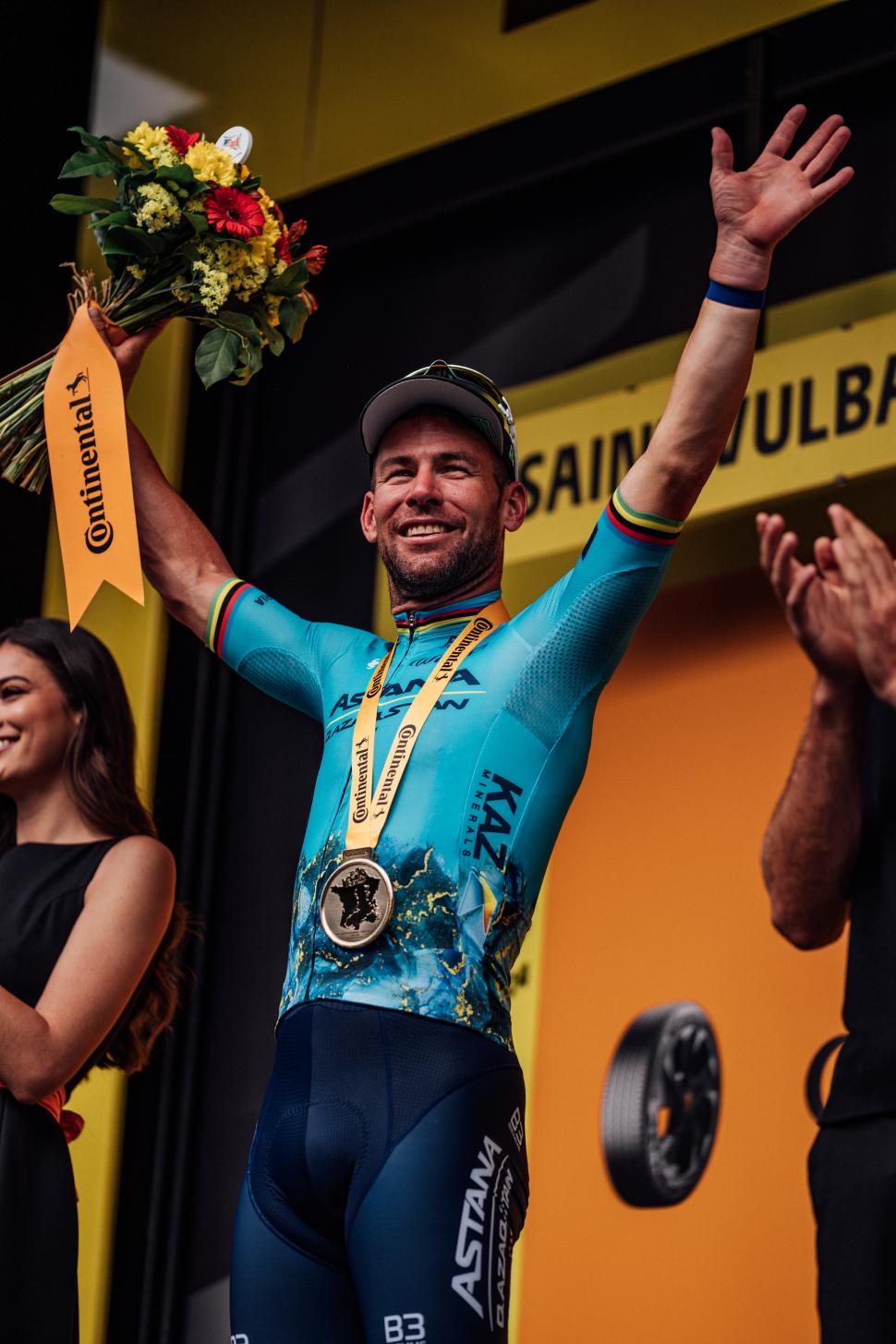
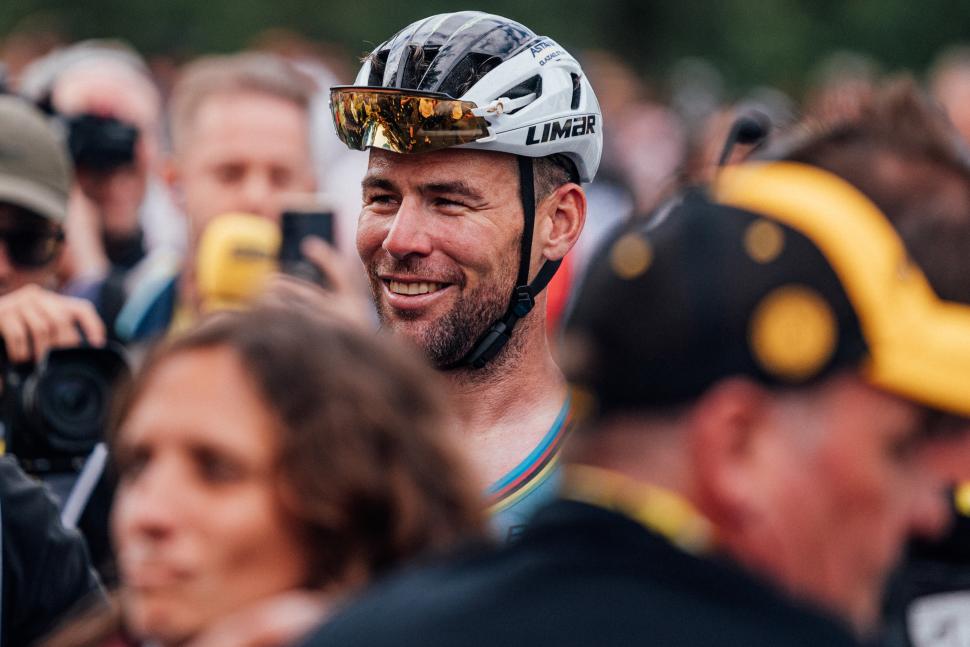
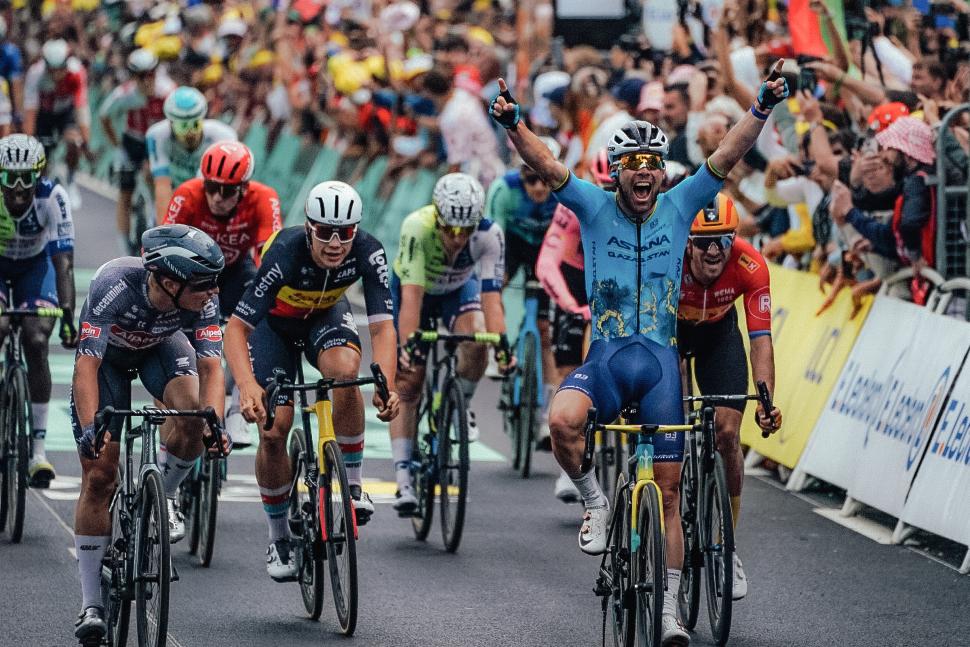
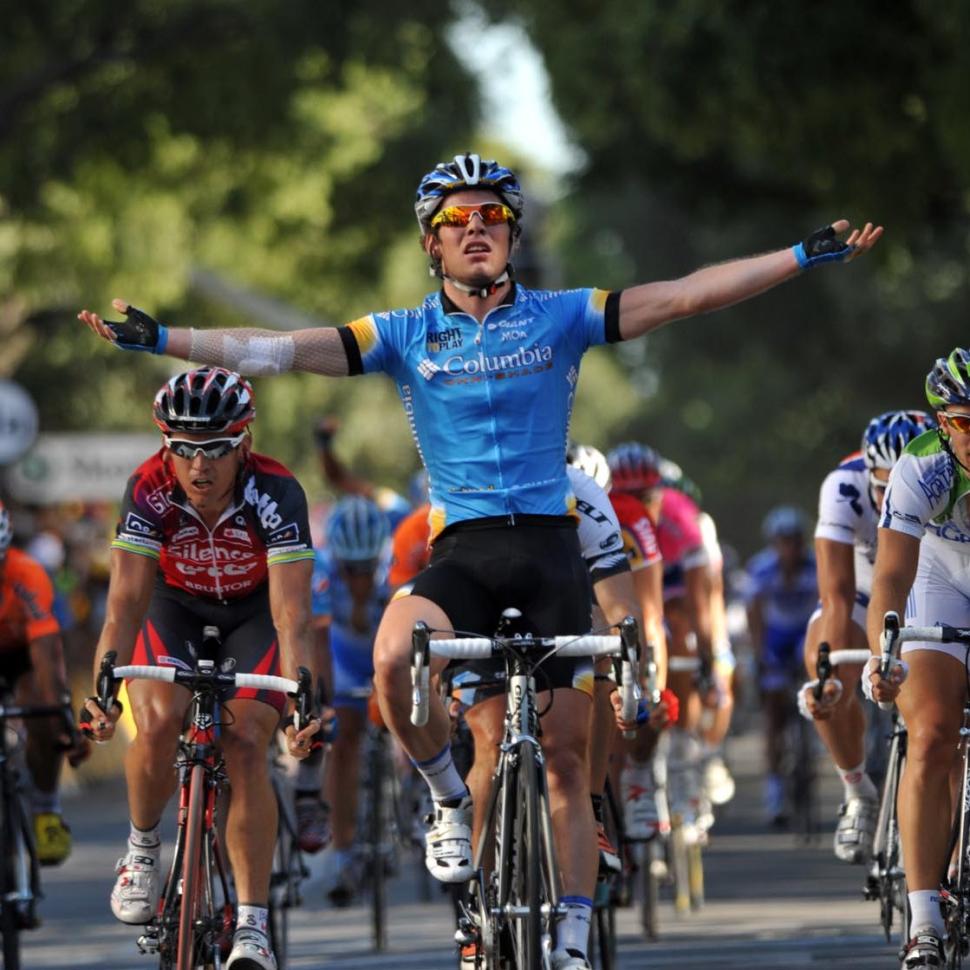
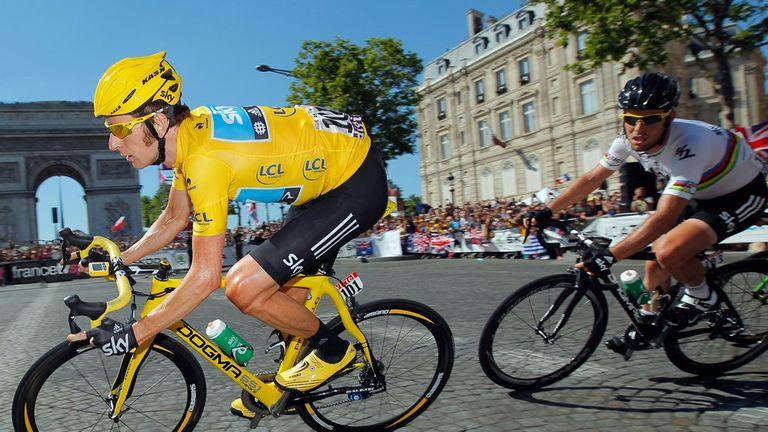
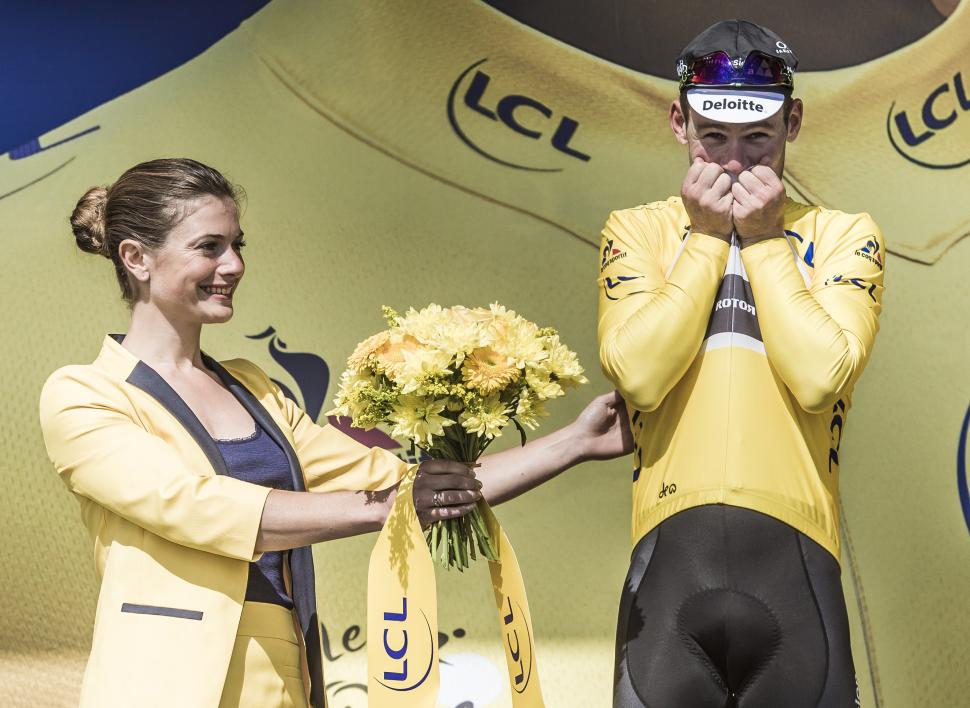

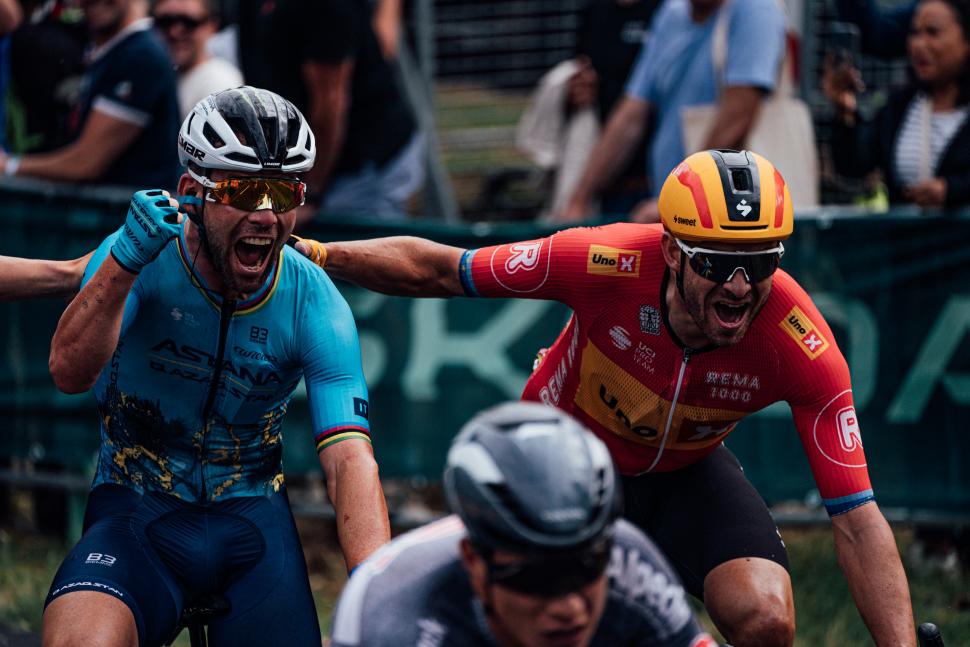
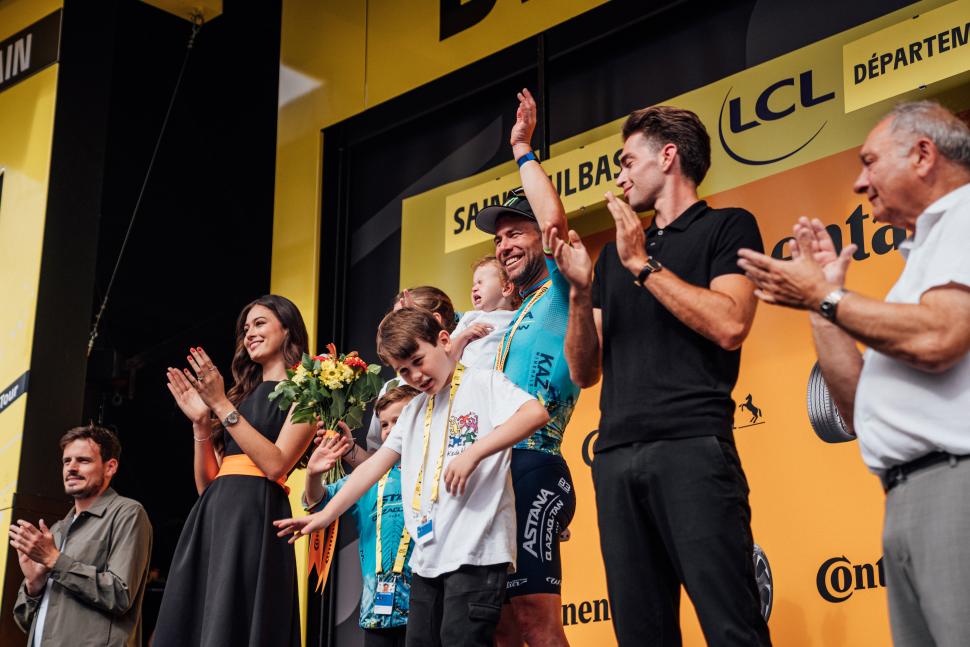
Add new comment
6 comments
Just never ceases to amaze how he finds the right wheel, the smallest gap and then the sudden burst of acceleration
It seems very unlikely, given the depth of younger sprint talent that will be at this tour - Philipsen, Pedersen, Bennett, Jakobsen (probably, DSM don't seem to have announced final selection yet), Groenewegen - but it would be an absolutely amazing fairy-tale ending to his career if he /did/ get that 35th.
It's unlikely, but regardless it will be amazing to see him try. Whatever else, he really has to make it to Paris^WNice to get the send-off he deserves.
Here to eat my words. Chapeau Mark. Fairytale book-end to an amazing career. And it's not even over yet!
A like for each of your posts - my head said he couldn't do it, but my heart (and tear ducts) are bursting that he did. Shame it won't finish on the Champs, but perhaps his last TT will just be a 33km procession soaking up the fans' adulation.
Every one of them brilliant, as were the other twenty-four, but for a British cycling fan of (ahem) a certain age who started watching in 1985 when British participation was minimal (with the honourable exceptions of Millar, Yates and a couple of others) I doubt anything will ever beat the sheer astonishment of seeing a British rider in the maillot jaune leading out the British world champion for the Champs win in 2012. Many tears were shed, much champagne was drunk. It's up there with the Rugby World Cup in 2003 and the Cricket World Cup in 2019 amongst my very best sporting memories.
You don't even have to be british. Seeing the maillot jaune lead out the WC for the sprint on the Champs Elysees and win was just a rare and special event in cycling.
Similar case in the stage 11 in the 2016, seeing a 4-man breakaway of the yellow jersey and the green jersey / WC + a team mate each strike out and win was amazing too.